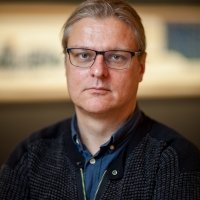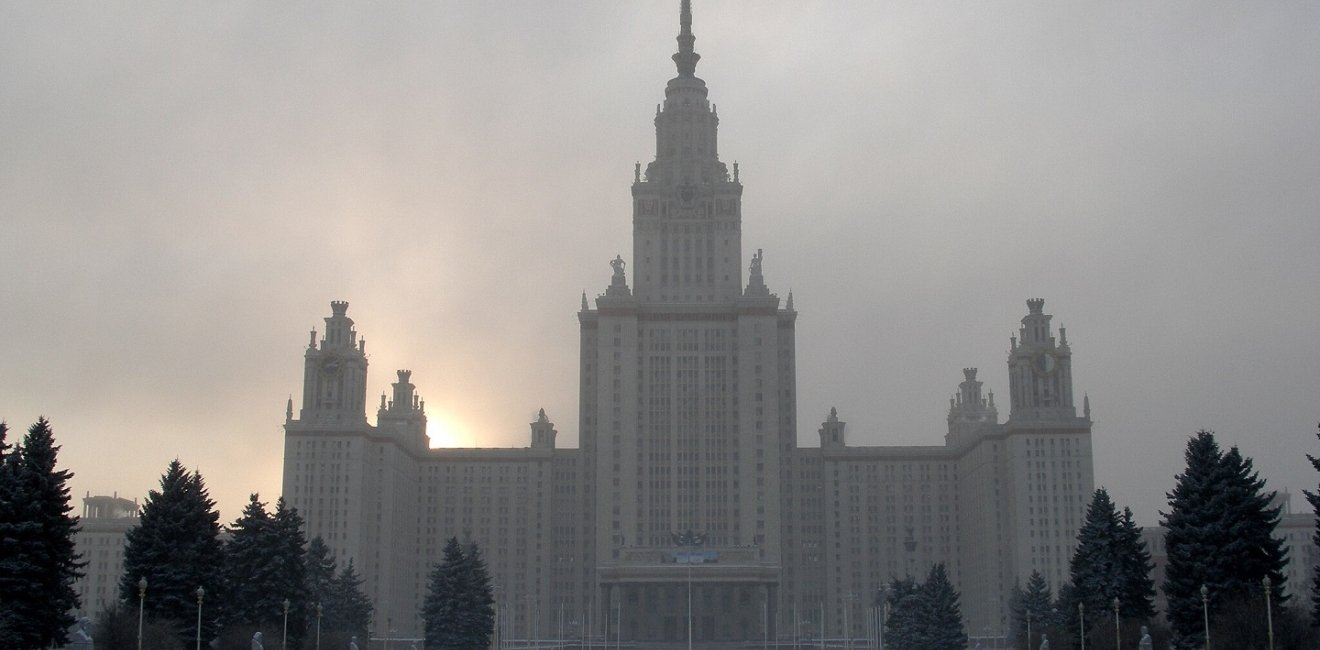
A blog of the Kennan Institute
The effects of Russia’s two-year war against Ukraine have been devastating for Russia’s scholarly and scientific communities. Two decades of modernizing reforms have been effectively reversed, turning Russia’s universities into tools of co-optation and propaganda.
Putin’s early years as president of Russia saw the globalization of Russian science and higher education. International cooperation programs, dual degree programs, and active academic exchanges were launched. Russia joined the Bologna Process and began actively using the opportunities for academic exchanges with European and North American universities.
Modernizing Russian Education
Russian officials undertook a set of reforms aimed at taking the country’s higher education to a new level. At least five universities were expected to ascend to the world’s top one hundred, according to the QS World University Ranking. New educational institutions emerged, offering high-quality and liberal education, reflecting an openness to global academic standards and practices.
Moscow introduced policies encouraging Russian scholars and scientists to publish in peer-reviewed international journals, which was soon reflected in various citation indexes. Leading Russian universities, especially the Higher School of Economics, the Moscow School of Social and Economical Sciences, and the European University at St. Petersburg, became respected centers for free research and debate.
This top-down modernization drive had its price. By the end of the first decade of the 2000s, the level of autonomy of Russian universities had decreased, not increased. Control over university leadership had significantly tightened. In many institutions the rector’s elections were suspended effectively in exchange for increased funding from the state. An increasingly centralized management system, which was supposed to enhance the quality of management, reduced individual academic freedom for academics.
At the same time, universities' charters were changed, resulting in a drastic reduction in the powers of the university academic councils, which consequently lost most of their authority, while rectors essentially became omnipotent and almost unrestricted leaders of universities.
Thus the result of the authoritarian modernization of higher education was the creation of a power hierarchy within Russian institutions of higher education. It is not uniquely a Russian issue, but the outcome fits the Kremlin’s authoritarian purposes nicely.
Conservative Shift in Higher Education
After 2014, following the annexation of Crimea, Russian politics saw an increase in isolationist trends and efforts to combat the “threat from the West.” Last year’s cancellation of the Bard-Smolny partnership was just one example of the trend. Russia’s official anti-Western rhetoric began to affect freedom of speech within the academy and beyond. The authorities pushed the idea of Russia as a unique civilization. The legislation labelling some institutions as “foreign agents” or “undesirable organizations” started to disrupt freedom of research and education. The Russian prosecutor's office requested information from Russian universities about the presence of “pro-American influence groups” within them.
At the same time, control over the leaders of higher education, who were previously more liberal, significantly increased. For example, the Higher School of Economics, originally established as a leader, began slowly moving—under the secret police’s direct pressure—away from its previous standards of academic freedom. After these changes, HSE increasingly resembled other Russian universities, although enclaves of freedom still remain within this institution.
The beginning of the open phase of military aggression against Ukraine on February 24, 2022, shocked many in Russia, including members of the academic community. An enhanced political control established during the centralizing reforms proved effective in escalating pro-war rhetoric and support for the “special military operation” that is Russia’s war against Ukraine.
War and Education
The Kremlin’s new formula for Russian education is ideologization (indoctrination through new mandatory courses), increased administrative power, and the deployment of old and relatively new administrative tools created to strengthen political control of Russian scholars. The regime is building an ideological power vertical, in which universities are supposed to play their designated role as centers for disseminating support for Russia’s wars and conflicts. (The Russia File covered the ideologization of Russian schools here.)
Nevertheless, a significant portion of Russian scientists and students quickly became involved in anti-war activities. The regime responded by effectively introducing military censorship. Such measures have included restrictions on free speech, increased surveillance, and the use of legal mechanisms to deter public expressions of dissent. In universities, dedicated staff were now monitoring and persecuting any anti-war publications or activities by Russian students, scientists, and teachers.
The authorities used administrative tools to bolster public support for war. These tools included orchestrating a controversial letter from the Union of Russian Rectors expressing support for the war as a “difficult decision made by President Putin.” This letter can be seen as an attempt to present a united front within the academic and educational sectors in favor of the war, leveraging the authority and respectability of academic institutions to legitimize military actions.
In 2023 the authorities pushed universities into introducing mandatory courses such as Russia as a Unique Civilization and triumphalist Russian history, effectively weaponizing universities in the Kremlin’s ideologization of social sciences and humanities.
The crackdown on dissenting voices, particularly those opposing the war in Ukraine, has had significant consequences for members of the academic community who have chosen to speak out. Some of them have been fired, others have decided to leave their institutions voluntarily or even to flee the country.
The climate of the war, repression, and fear directly affected the quality of knowledge production in Russia. The number of PhD dissertation defenses in 2023 declined by 22 percent from 2022. At the same time, the predictable breakdown of institutional cooperation with Western institutions was a reason to leave the Bologna system, intended to ensure comparability of standards between European countries, with the authorities declaring that Russia needed to develop its own unique higher education standards.
These days, international scholarly and scientific cooperation is focused on China, India, and Iran. Almost all previously existing academic exchange programs with Western universities have been terminated, and scholars from Russia are disappearing from international conferences. The number of Russian names in citation indexes is decreasing. The international scientific community is discussing a total ban of Russian academics because of Russia’s continued war of aggression.
The consequences for advances in science and higher education are already being felt. Primarily, ideologization has an impact on the quality and content of knowledge in the social sciences and humanities, returning Russia to the ideological isolation from which it emerged in the late 1980s. This influence is already affecting and will continue to affect both the topics studied and the quality and quantity of research. At the same time, researchers themselves, especially those involved in public sociology, describe their current sensation of working in Russia as “asphyxiation,” combining public silence caused by censorship and self-censorship with the absence of freedom's air.
The opinions expressed in this article are those solely of the author and do not reflect the views of the Kennan Institute
Author

Research Fellow, Department of Social Sciences, Charles University; Professor, Free University (Briva Universitate, Latvia)

Kennan Institute
After more than 50 years as a vital part of the Wilson Center legacy, the Kennan Institute has become an independent think tank. You can find the current website for the Kennan Institute at kennaninstitute.org. Please look for future announcements about partnership activities between the Wilson Center and the Kennan Institute at Wilson Center Press Room. The Wilson Center is proud of its historic connection to the Kennan Institute and looks forward to supporting its activities as an independent center of knowledge. The Kennan Institute is committed to improving American understanding of Russia, Ukraine, Central Asia, the South Caucasus, and the surrounding region through research and exchange. Read more

Explore More in The Russia File
Browse The Russia File
Chechnya as a Model of Modern Russia

Russia’s Indigenous Communities and the War in Ukraine

Gas and Power in a Changing US–Russia Relationship

